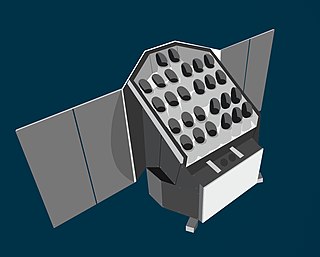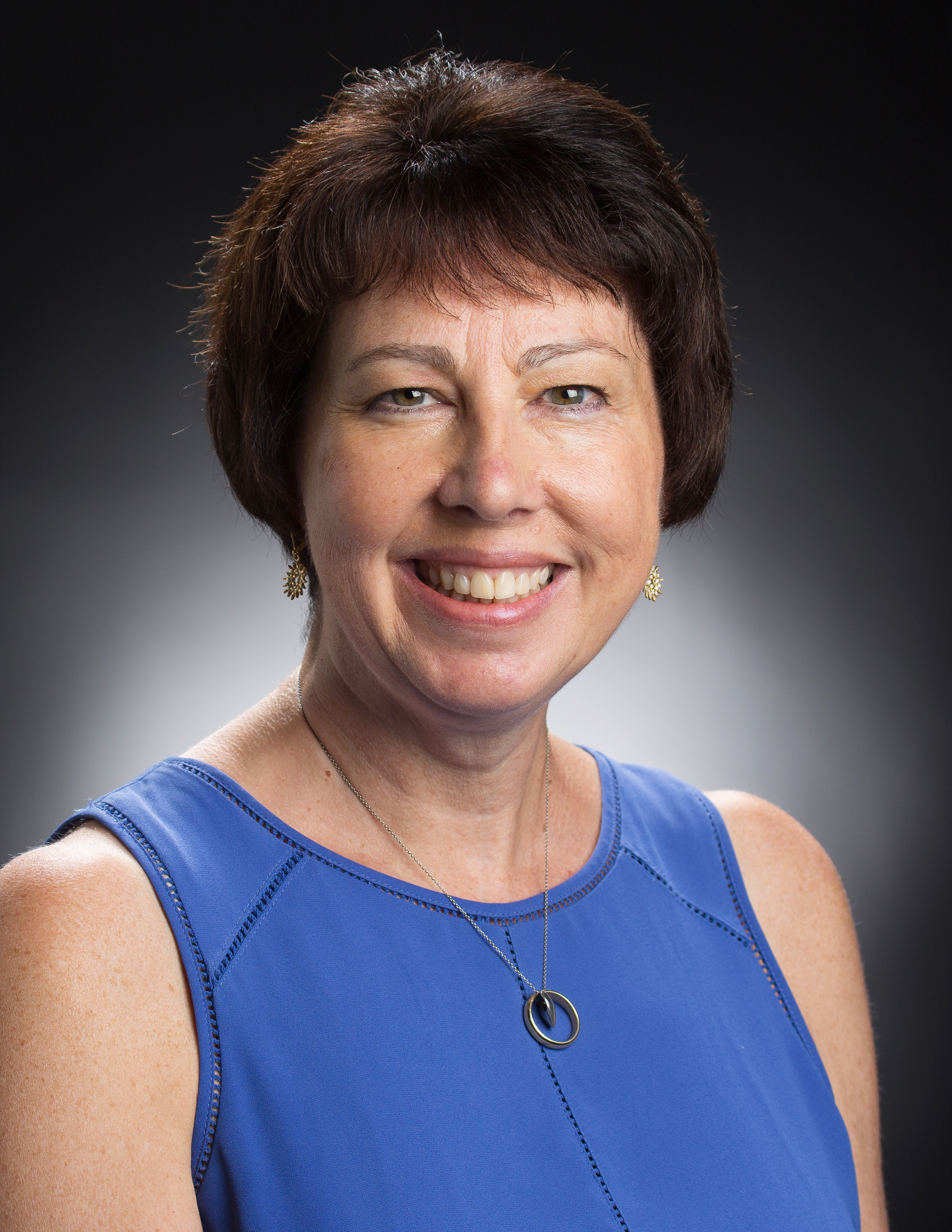Related Research Articles

The German Aerospace Center is the national center for aerospace, energy and transportation research of Germany, founded in 1969. It is headquartered in Cologne with 35 locations throughout Germany. The DLR is engaged in a wide range of research and development projects in national and international partnerships. DLR also acts as the German space agency and is responsible for planning and implementing the German space programme on behalf of the German federal government. As a project management agency, DLR coordinates and answers the technical and organisational implementation of projects funded by a number of German federal ministries. As of 2020, the German Aerospace Center had a national budget of €1.261 billion.
Dame Carole Jordan, is a British physicist, astrophysicist, astronomer and academic. Currently, she is Professor Emeritus of Astrophysics at the University of Oxford and Emeritus Fellow at Somerville College, Oxford. From 1994 to 1996, she was President of the Royal Astronomical Society; she was the first woman to hold this appointment. She won the Gold Medal of the Royal Astronomical Society in 2005; she was only the third female recipient following Caroline Herschel in 1828 and Vera Rubin in 1996. She was head of the Rudolf Peierls Centre for Theoretical Physics at the University of Oxford from 2003 to 2004 and 2005 to 2008, and was one of the first female professors in Astronomy in Britain. She was made a Dame Commander of the Order of the British Empire in 2006 for services to physics and astronomy.

Maria T. Zuber is an American geophysicist who is the vice president for research at the Massachusetts Institute of Technology, where she also holds the position of the E. A. Griswold Professor of Geophysics in the Department of Earth, Atmospheric and Planetary Sciences. Zuber has been involved in more than half a dozen NASA planetary missions aimed at mapping the Moon, Mars, Mercury, and several asteroids. She was the principal investigator for the Gravity Recovery and Interior Laboratory (GRAIL) Mission, which was managed by NASA's Jet Propulsion Laboratory.

SRON Netherlands Institute for Space Research is the Dutch expertise institute for space research. The Institute develops and uses innovative technology for analysis in space, focusing on astrophysical research, Earth science, and planetary research. SRON has a line of research into new and more sensitive sensors for X-rays and infrared radiation.

Michele Karen Dougherty is a Professor of Space Physics at Imperial College London. She is leading unmanned exploratory missions to Saturn and Jupiter and is Principal Investigator for J-MAG – a magnetometer for the European Space Agency's Jupiter Icy Moons Explorer, due for launch in April 2023.

PLAnetary Transits and Oscillations of stars (PLATO) is a space telescope under development by the European Space Agency for launch in 2026. The mission goals are to search for planetary transits across up to one million stars, and to discover and characterize rocky extrasolar planets around yellow dwarf stars, subgiant stars, and red dwarf stars. The emphasis of the mission is on Earth-like planets in the habitable zone around Sun-like stars where water can exist in a liquid state. It is the third medium-class mission in ESA's Cosmic Vision programme and is named after the influential Greek philosopher Plato. A secondary objective of the mission is to study stellar oscillations or seismic activity in stars to measure stellar masses and evolution and enable the precise characterization of the planet host star, including its age.

Planetary science is the scientific study of planets, celestial bodies and planetary systems and the processes of their formation. It studies objects ranging in size from micrometeoroids to gas giants, aiming to determine their composition, dynamics, formation, interrelations and history. It is a strongly interdisciplinary field, which originally grew from astronomy and Earth science, and now incorporates many disciplines, including planetary geology, cosmochemistry, atmospheric science, physics, oceanography, hydrology, theoretical planetary science, glaciology, and exoplanetology. Allied disciplines include space physics, when concerned with the effects of the Sun on the bodies of the Solar System, and astrobiology.

Margaret Galland Kivelson is an American space physicist, planetary scientist, and Distinguished Professor Emerita of Space Physics at the University of California, Los Angeles. From 2010 to the present, concurrent with her appointment at UCLA, Kivelson has been a research scientist and scholar at the University of Michigan. Her primary research interests include the magnetospheres of Earth, Jupiter, and Saturn.

Claudia Megan Urry is an American astrophysicist, who has served as the President of the American Astronomical Society, as chair of the Department of Physics at Yale University, and as part of the Hubble Space Telescope faculty. She is currently the Israel Munson Professor of Physics and Astronomy at Yale University and Director of the Yale Center for Astronomy and Astrophysics. Urry is notable not only for her contributions to astronomy and astrophysics, including work on black holes and multiwavelength surveys, but also for her work addressing sexism and sex equality in astronomy, science, and academia more generally.
Shukrayaan-1 is a planned orbiter to Venus by the Indian Space Research Organisation (ISRO) to study the surface and atmosphere of Venus.

Hanna von Hoerner was a German astrophysicist. She founded the company von Hoerner & Sulger which produces scientific instruments, notably cosmic dust analyzers used on space missions by the European Space Agency (ESA) and NASA.

Pascale Ehrenfreund is an Austrian astrophysicist. Ehrenfreund holds degrees from the University of Vienna and Webster Leiden. Prior to becoming a Research Professor of Space Policy and International Affairs at George Washington University, she was a professor at Radboud University Nijmegen, Leiden University, and University of Amsterdam in the Netherlands. She was the first woman president of the Austrian Science Fund (FWF) and from 2015-2020, she was the CEO of the German Aerospace Center. Since 2019, she is the President of the International Astronautical Federation (IAF) and since 2018, she is the Chancellor of the International Space University (ISU). Since 2021 she is president of the ISU. The main-belt asteroid 9826 Ehrenfreund is named in her honor. She is the President of Committee on Space Research from 2022 to 2026.
Sabine Stanley is a Canadian physicist, currently at Johns Hopkins University in the Zanvyl Krieger School of Arts and Sciences Morton K. Blaustein Department of Earth And Planetary Sciences and the Applied Physics Laboratory. She was awarded a Bloomberg Distinguished Professorship in 2017. She was previously a Canada Research Chair of Planetary Physics at University of Toronto. She was awarded the William Gilbert Award by the AGU in 2010 and was awarded a Sloan Research Fellowship in 2011.
Marina Galand is an atmospheric physicist and lecturer at Imperial College London. She is the 2018 recipient of the Holweck Prize for her "outstanding contribution to space physics by studying in a comprehensive and original manner the effects of energy sources on planetary atmospheres throughout the Solar System and beyond".

Ashley Lindalía Walker is an astrochemist, science communicator, and activist. In response to police brutality against Black Americans and sparked by the success of Black Birders Week, Walker co-organized #BlackinChem, #BlackInAstro, and #BlackInPhysics to highlight and amplify the voices of Black researchers and scholars in these fields.

Nicola J. Fox is the Associate Administrator for NASA's Science Mission Directorate. Appointed to the position in February 2023, she is therefore NASA's head of science. She was previously the Director of NASA's Heliophysics Science Division. Fox was the lead scientist for the Parker Solar Probe, and served as the Science and Operations Coordinator for the International Solar-Terrestrial Physics Science Initiative.

Renate Luise Brümmer is a Swiss-born German meteorological scientist and former astronaut. Specialising in satellite meteorology, she was selected as an astronaut in 1987, retiring in 1993, having never been into space.

Lynnae C. Quick, Ph.D. is an American planetary geophysicist and Ocean Worlds Planetary Scientist at NASA Goddard Space Flight Center. Her research centers on theoretical modeling of cryovolcanic processes on the icy moons and dwarf planets in the Solar System as well as modeling volcanic activity on Venus and the Moon. Quick is a member of the Dawn, Europa Clipper, and Dragonfly Mission science teams. She is also a member of the NASA Solar System Exploration Research Virtual Institute (SSERVI) Toolbox for Research and Exploration (TREX) team, and serves as co-chair of the Earth and Planetary Systems Sciences section of the National Society of Black Physicists.
The German space programme is the set of projects funded by the government of Germany for the exploration and utilisation of outer space. The space programme is run by the German Aerospace Center, who conduct research, plan, and implement the programme on behalf of the German federal government.
Caitriona Jackman is an Irish space physicist. In 2021, she became the first female senior professor at the Dublin Institute for Advanced Studies (DIAS) Dunsink Observatory. She has made important contributions to understanding the solar wind interactions with planetary magnetospheres.
References
- ↑ Rauer, Heike. "Curriculum Vitae, Prof. Dr. Heike Rauer" (PDF). lateaccretion.de.
- ↑ "Heike Rauer - Head DLR Institute of Planetary Research". www.dlr.de. Retrieved 2023-05-30.
- 1 2 "Die nach den Sternen greift". Helmholtz-Gemeinschaft Deutscher Forschungszentren (in German). 2018-11-15. Retrieved 2023-05-30.
- ↑ JPL , 10025